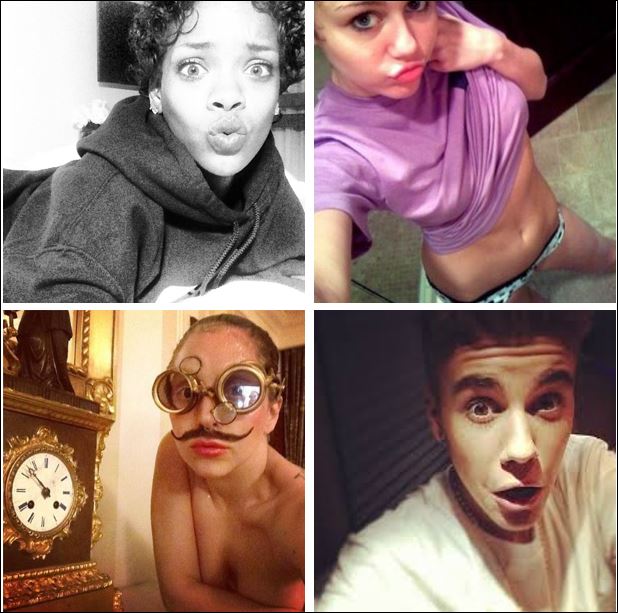I am a social media outlier. I have never posted a “selfie.”
In fact, I didn’t get it.
I kind of understand the teen trend as they compete in the market for mates but the steady, daily stream of selfies from business professionals, neighbors, and social media gurus? It’s like they are in their own reality show where the star, the director, and the plot are all “me.”
I could argue that taking pictures of yourself — duck-lipped and peace-signing — is the biggest mass sociological trend since the hippie movement in the 1960s. The third-most used hashtag on Instagram is #me. The Oxford Dictionary Word of the Year for 2013 is “selfie.”
Technology has fueled the selfie fire. In 2010, a front-facing camera was built into the iPhone 4, eliminating the need for “bathroom views.” Instagram and Snapchat provide the perfect platform when the self is the message and the selfie is the medium. When a face appears in a small, square Instagram photo, filtered and buffed to eliminate any unflattering detail, anybody can look like a star.
I became interested enough in this trend — and this apparent gap between me and the rest of the world — to study it. What drives people to post photos of themselves every day, or even every hour? What I found surprised, enlightened, and shocked me. Here are a few highlights of what I found that might provoke a few thoughts of your own …
On the surface, the trend is sort of affirming, if undeniably self-absorbed: Women, whether rich and powerful or otherwise, increasingly have a healthy image of themselves. That’s a good thing.
Dr. Peggy Drexler writing in Psychology Today
Research from the University of Birmingham, the University of the West of England, the University of Edinburgh and Heriot-Watt University.
The sheer volume and publicness of selfies defies any models we have and we fall back on social norms. Unless you’re a celebrity, monarch or head of state, people aren’t supposed to self-promote or ‘brag.’ Especially females. In democratizing portraiture, selfies violate social rules of self-presentation and therefore something’s wrong.
Dr. Pamela Rutledge in Psychology Today
Dr. Carole Lieberman, psychiatrist
I like to think that Instagram offers a quiet resistance to the barrage of perfect images that we face each day. Rather than being bombarded with those creations… we can look through our Instagram feed and see images of real people – with beautiful diversity.
Sarah J. Gervais in Psychology Today.
“Psychologically speaking, there may be some benefit to participating in sharing selfies because this practice is interwoven in our social culture and is a way to interact socially with others.”
Dr. Andrea Letamendi in Time
Dr. Diana Parkinson in Stylist
Profile pictures are meant to represent us. And knowing this, we look for meaning in even the goofiest of others’ profile pictures and speculate on the choice of pet, body part, or group. By contrast, selfies communicate a transitory message at a single moment in time. We are more concerned with the context, the “what’s going on” than the projection of identity.
Dr. Pamela Rutledge in Psychology Today
I’m anxious that girls are higher up on the ladder than I am: boys are looking at her, not me. I have to look like her to be worthy of boys’ attention. Boys’ tastes are not always sophisticated. The aesthetic yardstick is what they see in pornography. So girls have to conform to what boys see in pornography. And then girls post photos to ”out-hot” the other girls by porn star criteria.
Olympia Nelson,(11 years old) in The Age
In the end, my journey down the selfie rabbit hole provoked more questions than answers. Although I have a more balanced perspective of the psychology of the trend, I also wonder:
- What are the long-term implications of the public sexualization of children, primarily girls?
- How does a person’s life change when documenting the experience takes precedence over living it?
- What is the psychology of those who hate selfies? Are they jealous of beauty and youth? Do they enjoy demeaning a generation as narcissists? Are they displaying their own unhappiness and depression?
And most important perhaps, what does it mean about a person when they never, ever take selfies? Like me.
Awwwwww … what the hell …
